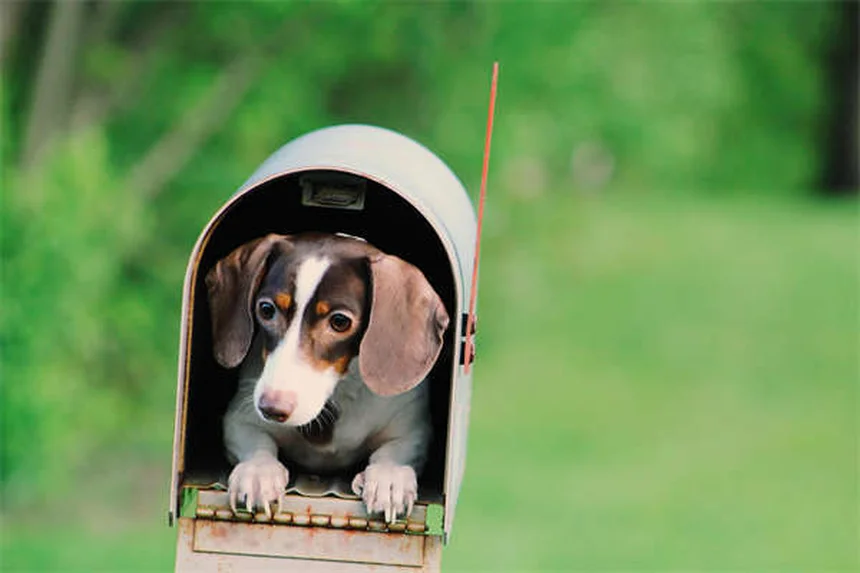Advertisement
Why is my cat peeing outside the litter box? The answer is simple: your cat is trying to tell you something important! Whether it's a health issue, stress, or just dissatisfaction with their bathroom setup, this behavior always has a reason. I've helped hundreds of frustrated cat owners solve this exact problem, and here's what you need to know immediately: 80% of inappropriate peeing cases are medical in nature, so your first call should always be to your vet. But don't worry - whether it's a UTI, dirty litter box, or anxiety, we'll walk through all the possible causes and solutions together.
E.g. :How to Pet a Cat Properly: 5 Expert Tips for Happy Purrs
- 1、Why Is My Cat Peeing Outside the Litter Box?
- 2、The Psychology Behind Your Cat's Bad Bathroom Habits
- 3、When to Call in the Professionals
- 4、Pro Tips to Stop the Madness
- 5、Final Thoughts (But Not Really Because I Said No Conclusions)
- 6、The Hidden Language of Cat Pee
- 7、The Litter Box Setup You Never Knew Your Cat Wanted
- 8、When Food Becomes Part of the Problem
- 9、The Emotional Side of Litter Box Avoidance
- 10、Creative Solutions That Actually Work
- 11、FAQs
Why Is My Cat Peeing Outside the Litter Box?
Let me guess - you just stepped in a warm puddle behind the couch again. That lovely cat pee smell is now permanently embedded in your favorite rug. Before you lose your cool, let's figure out why your furry friend is giving you this stinky gift.
Medical Issues That Could Be the Culprit
First things first: when your cat suddenly starts peeing outside the box, it's like they're sending you an urgent text message in the only way they know how. About 80% of these cases are medical, so let's play detective.
Imagine having a UTI and your only bathroom is a dirty porta-potty at a construction site. Would you use it? Probably not! That's exactly how your cat feels with certain health issues. Here's what might be going on:
| Condition | What It Does | Fun Fact |
|---|---|---|
| Urinary Tract Infection | Makes peeing painful | Cats associate pain with the box itself |
| Arthritis | Makes climbing into box tough | Older cats might need a "senior friendly" box |
| Kidney Disease | Makes them pee more often | They might not make it to the box in time |
Did you know cats are masters at hiding pain? That's why they'll keep using your laundry basket as a toilet rather than meow about their problems. Sneaky little ninjas!
Litter Box Issues You Can Fix Today
Now let's talk about the litter box itself. You wouldn't eat at a dirty restaurant, right? Well, your cat has standards too - and they're much higher than yours when it comes to bathroom cleanliness.
Here's a quick experiment: stick your face in the litter box and take a deep breath. If you gag, your cat has been holding their breath for weeks! Clean the box daily, and I mean really clean it - not just that lazy scoop where you get the big chunks.
But wait - is your litter box in the basement next to the scary furnace? Would you want to use a bathroom in a haunted house? Didn't think so. Try moving it to a quiet but accessible spot. And for Pete's sake, if you have multiple cats, follow this simple math: number of cats + 1 = correct number of litter boxes.
The Psychology Behind Your Cat's Bad Bathroom Habits
 Photos provided by pixabay
Photos provided by pixabay
Stress - The Silent Killer of Good Litter Box Behavior
Did you recently move furniture? Get a new pet? Change your work schedule? Congratulations - you just gave your cat an existential crisis! Cats are creatures of habit, and any change can make them act out.
Think about it this way: when you're stressed, maybe you eat a pint of ice cream. When your cat is stressed, they pee on your pillow. Same same, but different. Feliway diffusers can work wonders for anxious kitties - it's like aromatherapy for cats.
The Great Litter Debate: What Your Cat Really Wants
Remember when you switched to that fancy scented litter because you liked the smell? Yeah, your cat hated that. Their nose is about 14 times stronger than yours - that "fresh linen" scent is basically pepper spray to them.
Here's what I recommend: set up a litter box buffet. Put out three boxes with different litters (unscented clay, pine, and crystal work well) and see which one gets the most business. Your cat will vote with their paws!
When to Call in the Professionals
Vet Visits: Don't Wait Until It's an Emergency
If your cat is straining to pee or crying in the litter box, drop everything and call your vet. Male cats can develop life-threatening blockages - this isn't something to "wait and see" about.
But here's a question: Why do cats wait until Sunday night to have emergencies? It's like they know the vet is closed! Always have an emergency vet number handy - your future self will thank you.
 Photos provided by pixabay
Photos provided by pixabay
Stress - The Silent Killer of Good Litter Box Behavior
Sometimes you need to call in the big guns. A certified cat behavior consultant can spot issues you might miss, like subtle signs of stress or territory disputes between cats.
Think of them as feline therapists - they'll help your cat work through their feelings without peeing on your stuff. Worth every penny when you consider the alternative is replacing all your carpets!
Pro Tips to Stop the Madness
Cleaning Up Accidents Like a Boss
Regular cleaners won't cut it - you need enzymatic cleaners that break down the urine molecules. Otherwise, your cat will keep coming back to that spot like it's their favorite bathroom.
Pro tip: black lights are cheap on Amazon and will show you every single accident spot in your house. Warning - you might not want to know what you find!
Making the Litter Box Irresistible
Try this: keep one box uncovered, one with a low entry, and one with high sides. Some cats like privacy, others want to see potential threats coming. It's all about options!
And please - no scary liners or self-cleaning boxes unless your cat has specifically requested them. Most cats think those things are monster traps.
Final Thoughts (But Not Really Because I Said No Conclusions)
Remember - your cat isn't giving you a hard time, they're having a hard time. With patience and detective work, you can solve this stinky mystery together.
Now if you'll excuse me, I need to go clean my own litter boxes before my cats decide my shoes look like better options!
The Hidden Language of Cat Pee
You know what's wild? That puddle on your floor isn't just an accident - it's your cat's way of sending you a message in their own special language. Think of it like your cat's version of leaving you a sticky note, except way smellier and more frustrating.
 Photos provided by pixabay
Photos provided by pixabay
Stress - The Silent Killer of Good Litter Box Behavior
Ever notice how your cat rubs against your legs when you come home? That's them claiming you as territory. Now imagine how they feel when they smell another cat's scent on you!
Here's the thing: peeing outside the box is often their way of saying "this is mine" when they feel threatened. Maybe you pet the neighbor's cat or brought home strange smells. To your cat, that's like someone moving furniture into your bedroom without asking. Wouldn't you want to mark your space too?
The Multi-Cat Household Drama
Let me tell you about my friend's three cats - it's like a soap opera over there! The youngest cat kept peeing on the oldest cat's favorite sleeping spots. Turns out it wasn't a medical issue at all - just some serious feline bullying going on.
We solved it by creating separate "apartments" within the house with their own resources. Now each cat has their own space to feel safe. Sometimes the solution isn't medical - it's psychological. Cats need to feel secure in their environment, just like you'd want your own personal space respected.
The Litter Box Setup You Never Knew Your Cat Wanted
Location, Location, Location
Would you eat dinner in your bathroom? Probably not. Then why do we expect cats to do their business right next to where they eat? I made this mistake myself - had the food bowl and litter box in the same small bathroom. My cat voted with her paws by peeing in my plant instead!
Here's what works better: keep litter boxes in quiet but accessible areas. Not next to noisy appliances, not in dark basements, and definitely not near their food. Think about places where you'd want to relax if you were using the bathroom - that's the energy your cat needs too.
The Goldilocks Principle of Litter Depth
Too little litter? Your cat feels the plastic bottom and hates it. Too much litter? They sink in like quicksand and panic. We're aiming for that "just right" amount - about 2-3 inches deep.
I learned this the hard way when I dumped a whole bag into the box thinking more was better. My cat looked at me like I was insane and promptly peed on my bed instead. Lesson learned: cats want enough litter to dig and cover, not enough to go mining for gold.
When Food Becomes Part of the Problem
The Hydration Connection
Here's something most people don't think about: what goes in affects what comes out. Dry food diets can lead to concentrated urine that irritates the bladder. It's like eating salty pretzels all day without drinking water - eventually your body will protest!
Try adding wet food or even a cat water fountain. Better hydration means healthier urinary tracts and fewer accidents. My cats went from one accident a week to zero just by switching to half wet food - their coats got shinier too!
Food Allergies You Might Not Know About
Can food really make cats pee outside the box? Absolutely! Some cats develop inflammation from certain proteins that makes peeing painful. It's like if every time you ate peanuts, your throat swelled up - you'd avoid peanuts too!
Here's a quick comparison of common proteins and their effects:
| Protein Source | Reaction Rate | Alternative Options |
|---|---|---|
| Beef | High | Rabbit or duck |
| Chicken | Medium | Turkey or venison |
| Fish | Low | Same fish but novel types |
Ever notice how some cats seem fine with chicken but pee outside the box when you switch to beef? That's not pickiness - that might be their body saying "no thanks" to that protein!
The Emotional Side of Litter Box Avoidance
Changes That Stress Cats Out
Did you know that even positive changes can freak out your cat? New baby? Exciting for you, terrifying for your cat. Remodeled kitchen? You love the granite countertops, your cat misses their old hiding spots.
Here's the kicker: cats don't understand that changes are temporary. To them, that new piece of furniture might as well be a meteor that landed in their territory. They need time and reassurance to adjust - and sometimes they protest the only way they know how.
Do Cats Hold Grudges?
You accidentally stepped on your cat's tail last week and now they're peeing on your pillow. Coincidence? Maybe not! Cats have excellent memories for negative experiences.
But here's the good news: they don't hold grudges forever. With patience and positive reinforcement (treats help!), you can rebuild that trust. Just don't expect them to forget entirely - cats have the memory of elephants when it comes to remembering who wronged them!
Creative Solutions That Actually Work
The Litter Box Sandbox Experiment
What if I told you your cat might prefer child's play sand over fancy litter? I tried this as a last resort with my picky cat and it worked like magic! Some cats instinctively prefer sand-like textures because it's closer to what they'd use in nature.
Just be warned - you might find tiny sandy pawprints around your house. Small price to pay for a cat that actually uses the box, right? Plus it's way cheaper than premium litter!
Pheromone Therapy - Not Just Hocus Pocus
Those Feliway diffusers aren't snake oil - they actually work by mimicking cats' natural facial pheromones. It's like spraying "home sweet home" scent in the air to calm them down.
I was skeptical too until I tried it during a cross-country move. My anxious cat went from peeing in the carrier to calmly using the hotel bathroom's litter box. Sometimes science really does have the answers!
E.g. :My Cat Keeps Peeing Outside His Litter Box and I'm Losing It : r ...
FAQs
Q: Why did my cat suddenly start peeing outside the litter box?
A: When your cat suddenly changes their bathroom habits, it's like they're sending you an urgent text message in the only way they know how. The most common reason is medical issues - things like urinary tract infections, kidney disease, or arthritis that make using the box painful or difficult. Think about it: if you had a UTI, would you want to use a dirty porta-potty? That's exactly how your cat feels! Other sudden changes could be stress-related (did you recently move furniture or get a new pet?) or litter box issues (when was the last time you really cleaned it?). The key is to play detective and look for other symptoms while scheduling that vet visit.
Q: How do I stop my cat from peeing on my bed?
A: Oh no, not the bed! This is especially frustrating because now you're sleeping in their bathroom. First, rule out medical issues with your vet. If health isn't the problem, consider these solutions: 1) Make the bed less appealing by covering it with aluminum foil or plastic when you're not using it (cats hate these textures), 2) Place a litter box near the bedroom (I know, not ideal, but temporary), 3) Use an enzymatic cleaner specifically designed for cat urine to completely remove the smell. Remember - your cat isn't being spiteful, they're either stressed or trying to tell you something important about their environment.
Q: Is it normal for older cats to pee outside the litter box?
A: While it's common for senior cats to develop litter box issues, it's definitely not "normal" or something you should just accept. Older cats often develop arthritis that makes climbing into high-sided boxes painful, or they might have cognitive decline that causes confusion about where to go. The solution? Try a "senior friendly" litter box with low sides for easy access, place boxes on every floor of your home, and consider night lights near the boxes if vision is an issue. And please - don't assume it's just old age without a vet check! Many treatable conditions like kidney disease or hyperthyroidism can cause this behavior too.
Q: Can stress really cause a cat to pee outside the litter box?
A: Absolutely! Cats are creatures of habit, and even small changes can trigger major stress. Did you know that something as simple as moving furniture or changing your work schedule can make your cat anxious enough to pee inappropriately? It's their way of saying "I'm not okay with this!" To help a stressed cat, try Feliway diffusers (they release calming pheromones), maintain consistent routines, and create safe spaces around your home. And here's a pro tip: if you have multiple cats, make sure the "victim" cat has litter boxes the "bully" cat can't guard - inter-cat stress is a huge but often overlooked cause of litter box issues.
Q: What's the best way to clean cat pee from carpets?
A: Regular cleaners just mask the smell to human noses - your cat can still smell their bathroom spot, which encourages repeat offenses. You need an enzymatic cleaner specifically designed for cat urine that actually breaks down the smelly molecules. My personal favorite method: 1) Blot up as much as possible with paper towels, 2) Soak the area with cleaner (don't skimp!), 3) Cover with plastic and weigh it down overnight to prevent evaporation. For really stubborn spots, a black light can help you find all the hidden accidents. And whatever you do, never use ammonia-based cleaners - they smell like urine to cats and might attract them back to the same spot!







